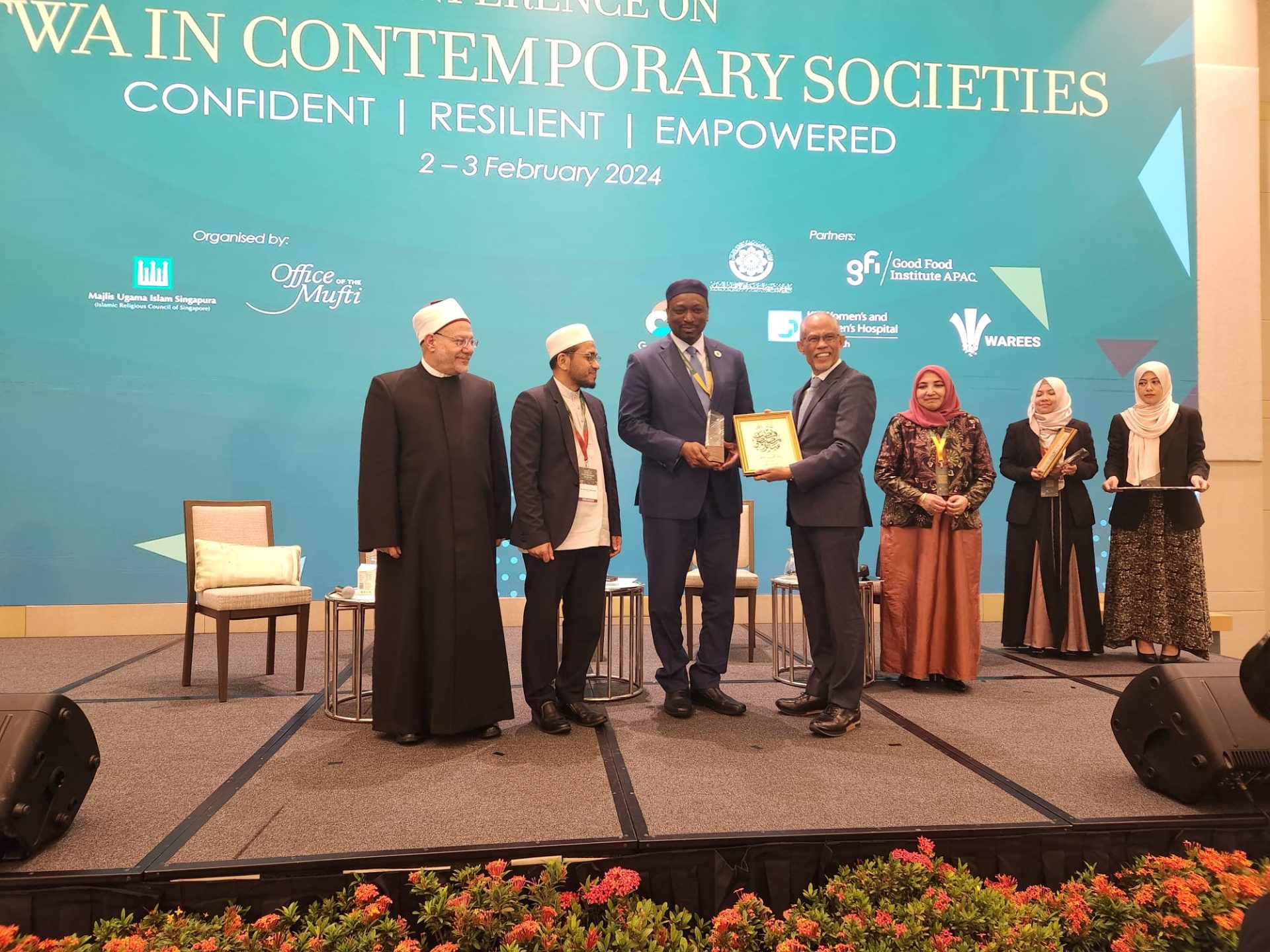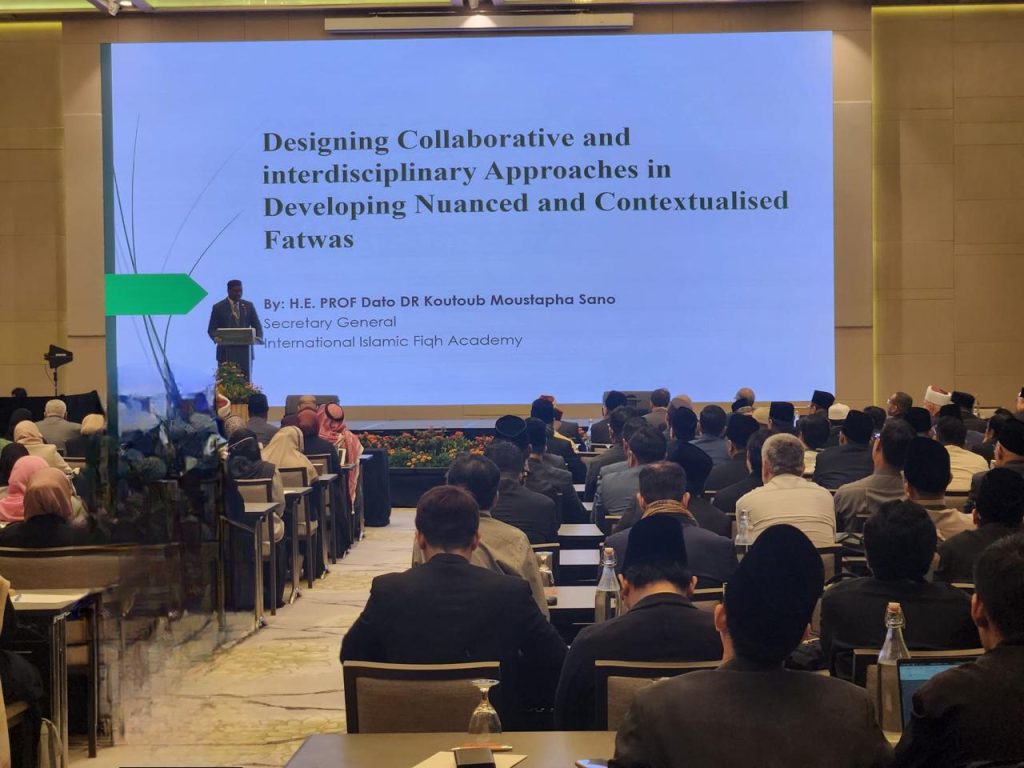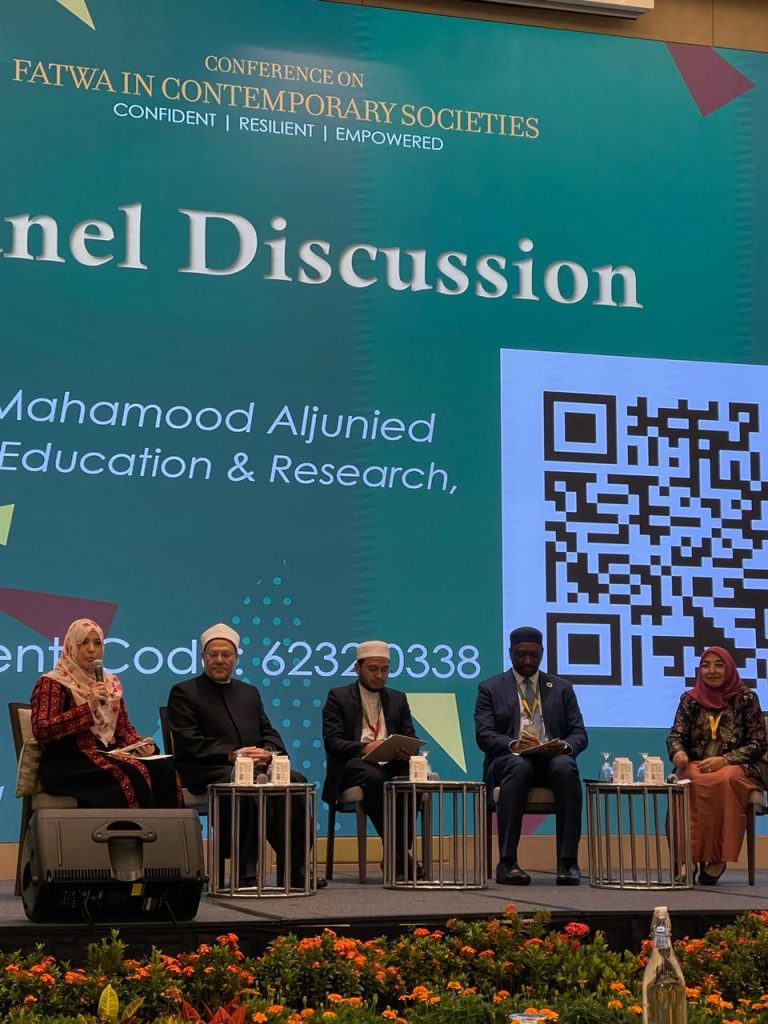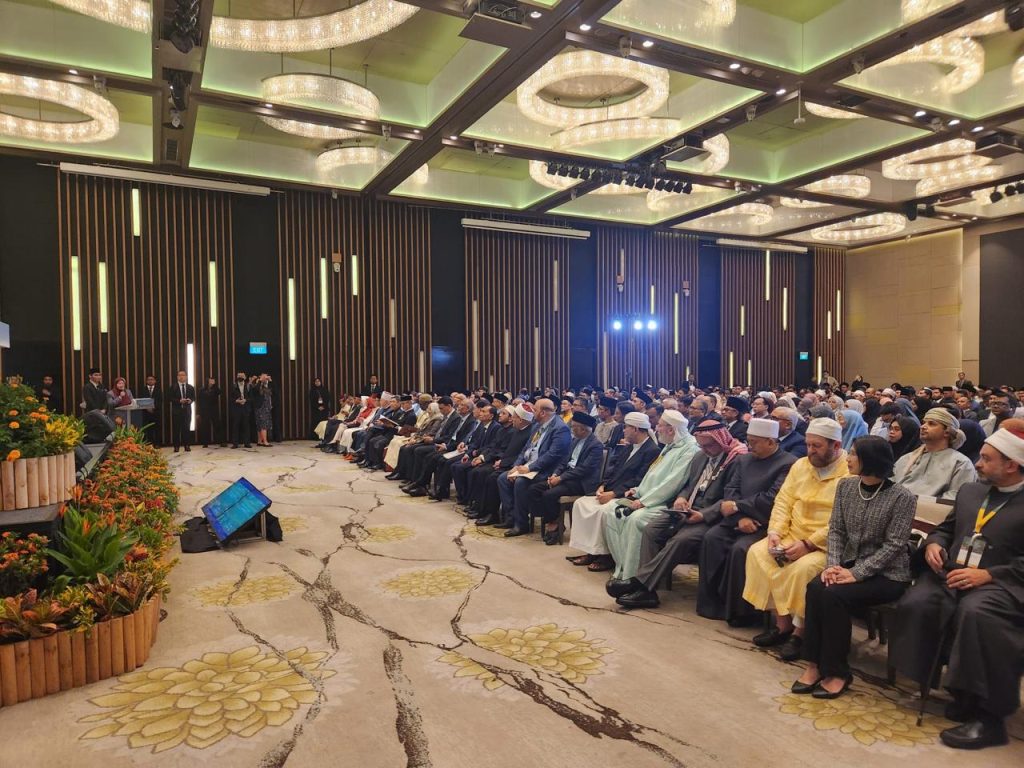
As a guest speaker at the Conference on Fatwas in Contemporary Societies organised by the Islamic Council of Singapore under the auspices of the Ministry of Social and Family Development and the Ministry in-Charge of Muslim Affairs in Singapore, Secretary General H.E. Dato’ Professor Koutoub Moustapha Sano delivered a keynote speech titled: Designing Collaborative and interdisciplinary Approaches in Developing Nuanced and Contextualised Fatwas, on Saturday 02-03 February 2024 in the capital city of Singapore.
His Excellency began his speech by expressing his sincere thanks and appreciations to the Republic of Singapore, for choosing relevant and important topic for the conference. He also expressed his pleasure in participating in this important conference that discusses approaches and methods that are used to update fatwas and develop fatwa institutions in different contexts.
Beginning his speech, Prof. Koutoub Moustapha Sano highlighted how Fatwa has been the main recourse of Muslims across history in order to know Sharia provisions on calamities and developments, indicating how it is pivotal in shaping the contemporary Muslim mind, defining its identity, and its view of itself, its society, and the world around it. The wisdom of the Lord of the Worlds required that the task of explaining and clarifying the Sharia rulings be limited to a distinguished group of scholars who combine knowledge of the Sharia and knowledge of reality, and his great wisdom required that the practice of this honorable industry remain sacred throughout history, based on its impact on perceptions and new developments.
His Excellency also spoke about the importance of fatwa and its methodology, saying: “Fatwa has become practiced through newspapers, magazines, radio stations, satellite channels, web pages, fixed and mobile phones, electronic messages and other means of communication, which has increased its impact on individuals and societies deeply. However, it is regrettable what we see today that people unqualified for fatwa dare to use it as a be vehicle for fame, misleading popularity, and cheap means to spread sedition, vices, and unrest. Therefore, it is necessary to provide a mechanism to protect this honorable profession by establishing a Sharia-based framework that protects people and societies from aberrant fatwas issued by unqualified people, prevents manipulation of religious rulings, and its harmful effects on the intellectual security of people and societies, such as the spreading fanaticism, and extremism in thoughts and behavior.”
His Excellency reiterated the role of fatwa institutions in public matters, stating: “It is crucial for those who issue fatwas without proper qualification to understand that fatwas on public matters are the purview of fatwa institutions, not individual scholars. He also stressed the importance of holding accountable those who jeopardize public well-being and safety, and those who manipulate people’s religions and beliefs through unlawful and misguided fatwas on public matters.”
His Excellency provided a comprehensive overview of the Academy’s methodology in issuing fatwas, stating: “The Academy’s approach is characterized by systematic resolutions and recommendations, aimed at providing Sharia-compliant solutions to the contemporary issues faced by Muslims worldwide. The Academy, since its inception, has been committed to transforming fatwa issuance from an individual task to an organized institutional one, thereby avoiding improvisation, randomness, and chaos. This necessitates vigilant monitoring of the myriad issues, challenges, and developments that continue to impact contemporary life, and devising rational means and methods to address them.”
His Excellency also called on Ifta bodies and institutions to draw the best from ICT in order to communicate their fatwas to the people while exercising caution and attention, and not confusing constants and variables when issuing fatwas and to closely follow the issues and developments to address them and clarify their rulings to enable people to know the Sharia rulings on these issues and developments. Finally, Ifta institutions should be a model of discipline, transparency, and organization, avoiding improvisation and haste when dealing with new developments and issues to formulate neutral and accurate fatwas.
Talking about the foundations of fatwa, His Excellency emphasized the ability of fatwa to meet people’s needs and provide appropriate solutions that always rely on Sharia and places due to its sound principles and flexible rules that aim to achieve interest and prevent mischief through studied scientific research, benefit from the fiqh of the imams of the eight schools of law. His Excellency explained that the Academy reveres the jurisprudence of the eight schools, respects their imams, and refuses to prejudice them under any justification, emphasizing its belief that these imams are all imams of guidance, in accordance with the fundamental rule “there is no denial in matters of ijtihad” and the rule “ijtihad is not rejected by the same”.
Given that Singapore is a multi-ethnic, multicultural and multi-religious society, His Excellency called for fatwa to be institutionalized rather than individualized to avoid contradictions and inconsistencies that could lead to conflict, fragmentation and disgraceful disagreement. He also called for utilizing modern technologies and means of communication to help develop and advance the fatwa renaissance in a way that prevents individualized fatwas.
Regarding the challenges facing Ifta and its institutions, especially Singapore, His Excellency emphasized the need for diligent work and wise thinking in order to keep pace with developments, transformations, and changes in all areas of life to make them all serve Islam, Muslims, and humanity as a whole.
At the end of his intervention, His Excellency renewed his kind invitation to fatwa institutions at the conference of the General Secretariat of Fatwa Houses and Authorities in Cairo to recall the five values to rationalize and guide contemporary fatwa institutions. The five memes are: institutionality, credibility, relevance, methodology and professionalism.” His Excellency also expressed his hope that the Islamic worldview will succeed in achieving happiness for human beings, in rejecting violence, hate speech, and exclusion and calls for building societies based on the values of love, brotherhood, tolerance, harmony, and lasting peace will be realized.
Read Also
Lastest











